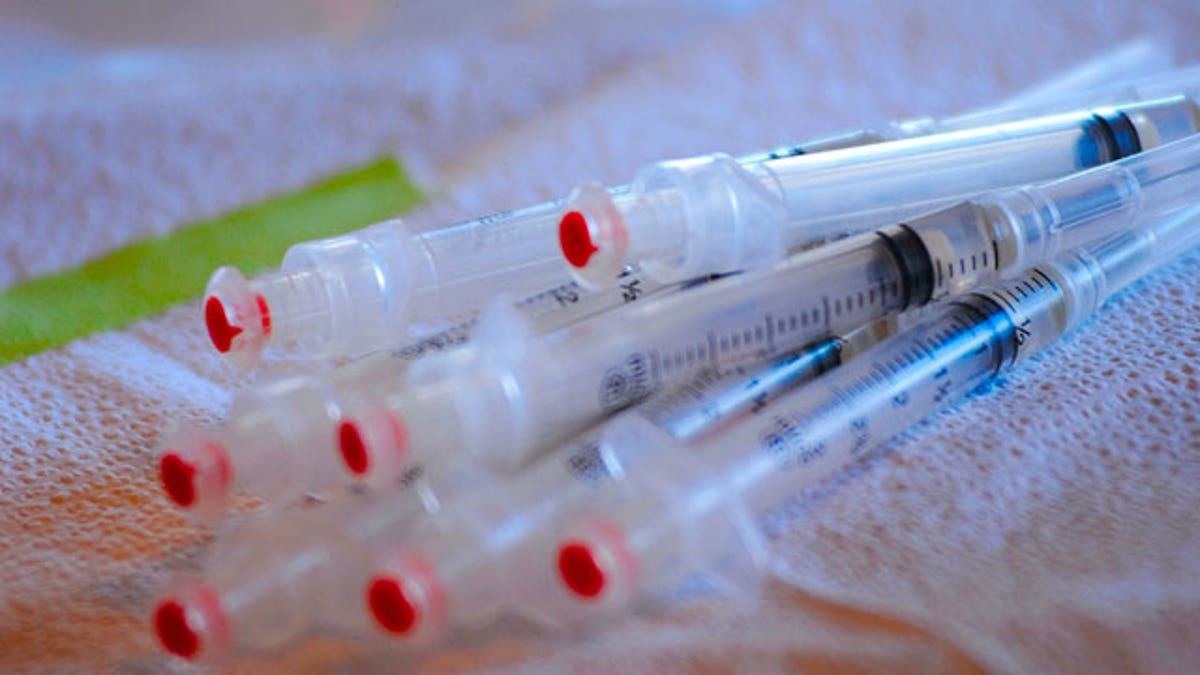
The Supreme Court ruled that federal law shields vaccine makers from product-liability lawsuits in state court seeking damages for a child's injuries or death from a vaccine's side effects.
The high court on Tuesday ruled for Wyeth, which is now owned by Pfizer Inc, in a lawsuit brought by the parents of Hannah Bruesewitz, who suffered seizures as an infant after her third dose of a diphtheria-tetanus-pertussis (DTP) vaccine in 1992.
Pfizer and other vaccine makers had argued that a Supreme Court ruling for the plaintiffs could open the door to a flood of lawsuits -- many by families who believe vaccines cause autism -- and threaten the supply of childhood vaccines.
Pfizer Executive Vice President and General Counsel Amy Schulman said the company was pleased with the ruling.
"The Vaccine Act that Congress enacted nearly 25 years ago appropriately places the responsibility for determining the optimal design of life-saving childhood vaccines in the hands of expert federal agencies, not a patchwork of state tort systems," she said.
At issue in the ruling was the National Childhood Vaccine Injury Act of 1986, a law that created a special program to handle disputes in an effort to ensure a stable vaccine supply by shielding companies from most lawsuits.
The federal program, involving what is known as the vaccine court, has awarded more than $1.8 billion for vaccine injury claims in nearly 2,500 cases since 1989. It is funded by a tax on vaccines.
In the Hannah Bruesewitz case from Pennsylvania, her parents claimed in their lawsuit that her seizure disorder and serious developmental delay stemmed from toxins in the vaccine's design.
They said a safer alternative had been available but was not used. The DTP vaccine was taken off the market in 1998.
Russell and Robalee Bruesewitz said their daughter was a healthy infant until she received the shot, but has experienced seizure disorders and developmental problems ever since, requiring a lifetime of supervision and care.
Wyeth Has Denied Vaccine Caused Injuries
Wyeth has denied its vaccine caused her injuries.
After the couple's claims were rejected under the federal compensation process, they filed a lawsuit in state court. But a federal judge and then a federal appeals court based in Philadelphia ruled the 1986 federal law barred such lawsuits.
The Supreme Court, in a majority opinion by Justice Antonin Scalia, upheld that decision and ruled the federal law pre-empted all such design-defect claims against vaccine manufacturers.
"Vaccine manufacturers fund from their sales an informal, efficient compensation program for vaccine injuries; in exchange they avoid costly tort litigation and the occasional disproportionate jury verdict. Congress enacted this deal to coax manufacturers back into the vaccine market," Scalia said.
The ruling accepted the Obama administration's position.
O. Marion Burton, president of the American Academy of Pediatrics, which represents 60,000 pediatricians, applauded the ruling.
"Today, the U.S. Supreme Court affirmed what pediatricians have been advocating for decades," Dr. Burton said. "Vaccines save lives."








































